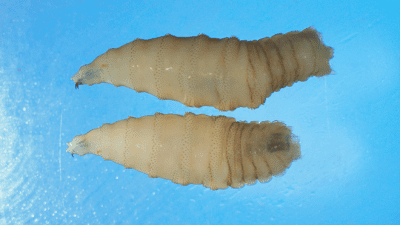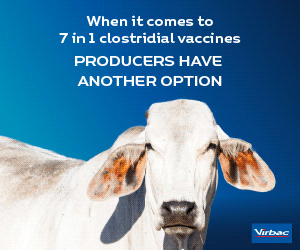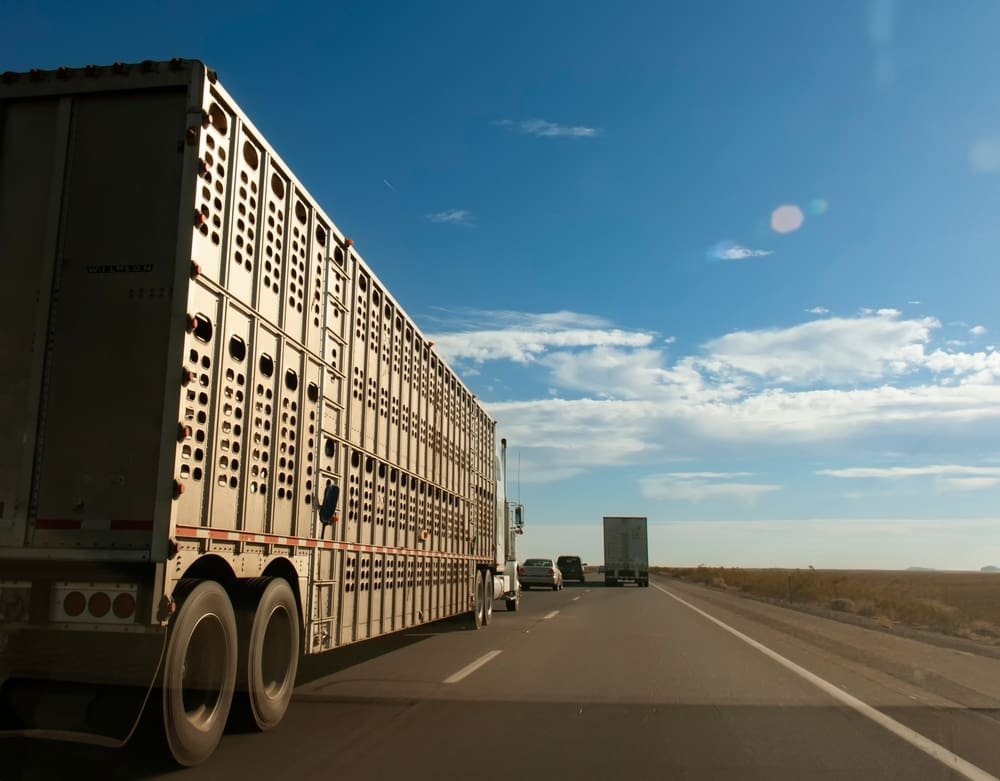The United States has suspended, effective immediately, imports of cattle and other livestock through the Mexican border as it moves to protect its herd against a worsening New World Screwworm outbreak in Mexico.
The US Department of Agriculture said in a statement the deadly parasitic fly was recently detected in remote farms in Mexico within 700 miles of the US border.
The “unacceptable northward advancement of NWS” meant additional action must be taken, US Secretary of Agriculture Brooke Rollins said in the statement.
The suspension will persist on a month-by-month basis until a significant window of containment is achieved, she said.
The US typically imports more than a million cattle a year from Mexico.
🚨Due to the threat of New World Screwworm I am announcing the suspension of live cattle, horse, & bison imports through U.S. southern border ports of entry effective immediately.
The last time this devastating pest invaded America, it took 30 years for our cattle industry to…
— Secretary Brooke Rollins (@SecRollins) May 11, 2025
Secretary Rollins said US and Mexico continued to work “in good faith” to eradicate NWS in Mexico.
“However, it is my duty to take all steps within my control to protect the livestock industry in the United States from this devastating pest,” she said.
“The protection of our animals and safety of our nation’s food supply is a national security issue of the utmost importance.
“Once we see increased surveillance and eradication efforts, and the positive results of those actions, we remain committed to opening the border for livestock trade.
“This is not about politics or punishment of Mexico, rather it is about food and animal safety.”
NCBA supports suspension to protect biosecurity
The National Cattlemen’s Beef Association (NCBA) has also released a statement announcing its support for the USDA decision to close the US southern border to shipments of cattle, bison and horses due to the continued spread of New World screwworm beyond the phytosanitary border put in place to stop its advance.
The suspension was the latest move to halt the spread of an invasive pest “that puts the entire US livestock industry at risk”, the NCBA statement said.

When NWS fly larvae (maggots) burrow into the flesh of a living animal, they cause serious, often deadly damage to the animal. NWS can infest livestock, pets, wildlife, occasionally birds, and in rare cases, people.
“For months, NCBA and affiliated state cattle industry associations have been working with USDA officials urging their counterparts in Central America to take stronger action to stop the spread of New World screwworm. In the 1960s, America’s cattle and livestock producers spent years and millions of dollars to eradicate New World screwworm from the United States,” NCBA CEO Colin Woodall said.
The NCBA statement said the United Stated has long maintained its commitment to fighting New World screwworm by funding the production of sterile flies needed to keep this pest out of Central and North America.
But, despite the United States’ work to control the pest, weak governmental participation in Central America allowed the insect to spread north out of Panama.
This had been coupled with a lack of timely action by officials in Mexico and now the US cattle herd, other livestock, wildlife, pets, and humans “are all at risk again”, the NCBA said.
“USDA’s border closure was entirely avoidable. U.S. government officials, NCBA and leaders from affiliated state cattle industry associations have been sounding the alarm for months.
 “Unfortunately, the Mexican government created unnecessary bureaucratic hurdles which rendered prevention efforts ineffective and allowed screwworm cases to spread unchecked beyond control points in southern Mexico,” Mr Woodall said.
“Unfortunately, the Mexican government created unnecessary bureaucratic hurdles which rendered prevention efforts ineffective and allowed screwworm cases to spread unchecked beyond control points in southern Mexico,” Mr Woodall said.
“The Mexican government’s failure to knock down senseless obstacles has left America with no alternative but a closure of the U.S. border until the outbreak is verifiably stopped and the flies pushed back south of Panama’s Darien Gap.”
The NCBA statement said it acknowledged that the border closure would create economic harm for US farmers and ranchers, and create supply chain disruptions, but the costs would be far less than if New World screwworm crosses into the United States and we’re forced to fight the pest on US soil.
In April Mexico also reported its first human myiasis case from NWS, a 77-year-old woman from Chiapas state in southern Mexico, according to Reuters.
The US halted imports of Mexican livestock in November last year after it was alerted to an NWS detection in a cow in southern Mexico.
The USDA increased sterile fly deliveries and supported additional surveillance programs in Mexico, which led to the trade being reopened in February this year.
Two weeks ago the US Government warned that Mexican authorities were not doing enough to support NSW control efforts and threatened to block livestock imports again.
Eight days ago it was reported that the United States and Mexico had reached a resolution that would enable Mexican cattle imports to continue entering the US, but the subsequent detection of NWS much closer to the US
“Does not solve the problem”: Mexico
Cited by US media reports, Mexico’s agricultural council chief, Luis Fernando Haro, said the ban is unnecessary and “does not solve the problem.”
He said established protocols already ensure that cattle crossing into the US are “guaranteed to be free of screwworms.”
Mexican Agriculture Secretary Julio Berdegue also disagreed with the ban but hoped the two countries would reach an agreement soon.


HAVE YOUR SAY